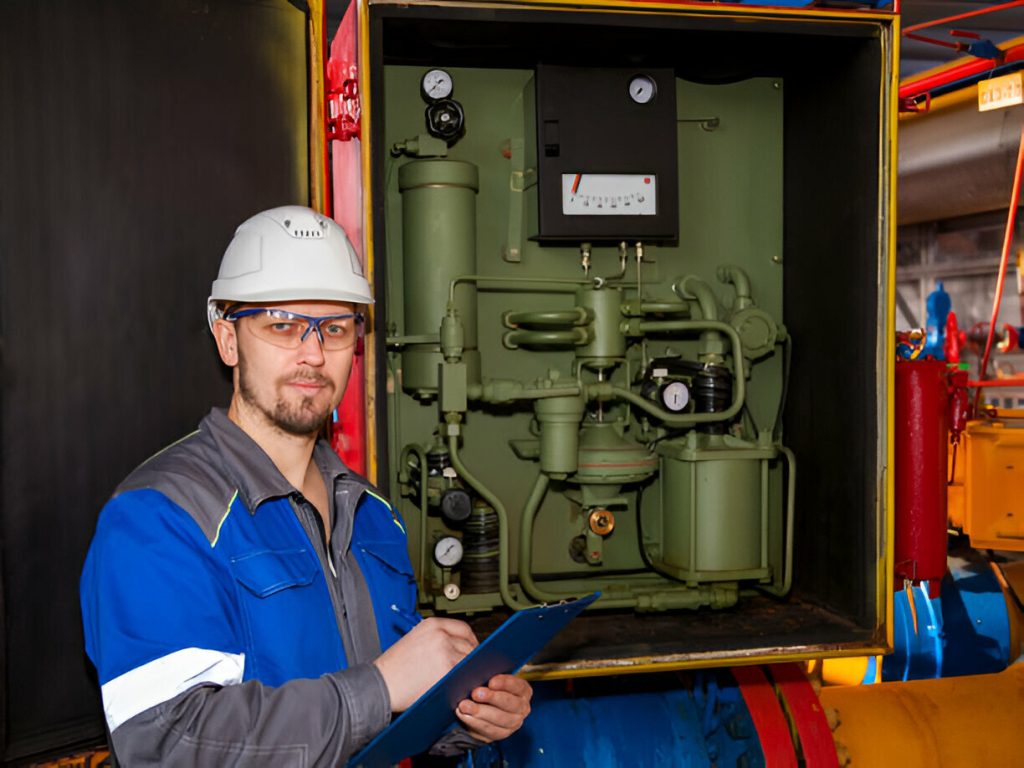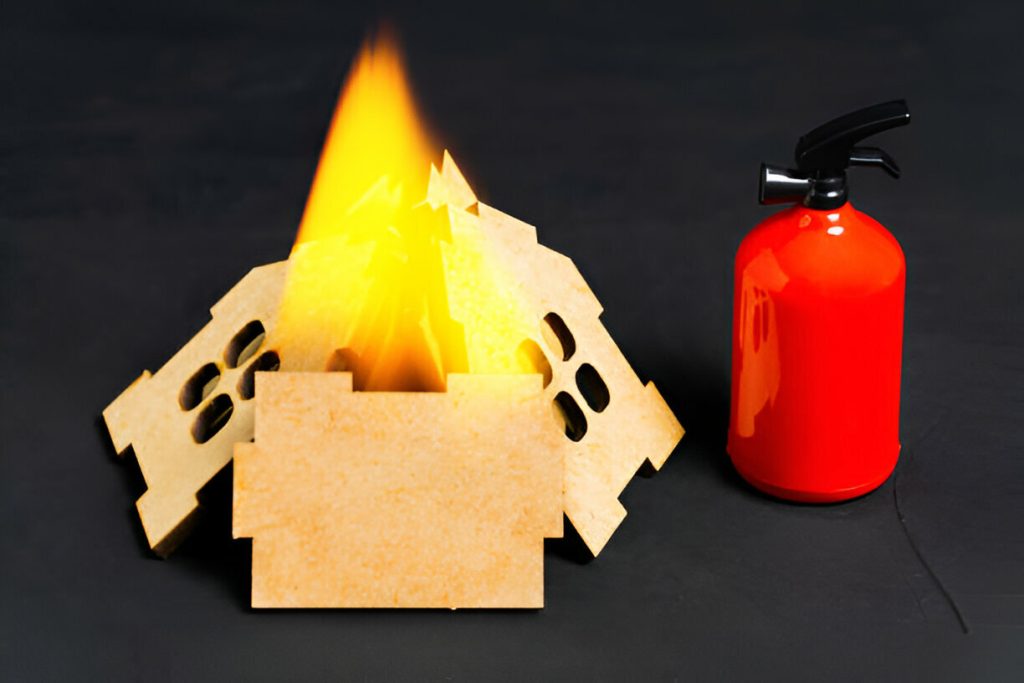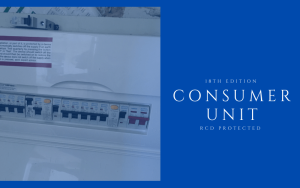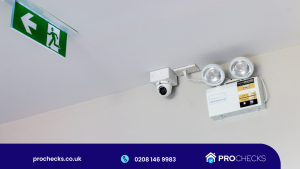Navigating the process of obtaining your FRA Certificate in London is akin to charting a course through a complex maze; each turn revealing new challenges and requirements to overcome.
As I share insights on the intricacies of achieving this crucial certification, we will explore the key steps, considerations, and strategies necessary to successfully secure your FRA Certificate.

Stay tuned to unravel the secrets of mastering fire risk assessments and ensuring compliance in the vibrant city of London.
Understanding Fire Risk Assessment
Understanding the importance of fire risk assessment is crucial for ensuring the safety and compliance of properties with fire safety laws. Fire safety is a paramount concern, and conducting a thorough property inspection is the first step in identifying potential hazards. Hazard identification plays a significant role in preemptively addressing risks that could lead to fire incidents. Through meticulous risk assessment, one can pinpoint areas needing safety improvements, such as mitigating heat sources, managing flammable materials, and addressing electrical issues.
Property owners must recognize the significance of risk assessment not only for regulatory compliance but also for safeguarding occupants and investments. By adhering to fire safety regulations and implementing recommendations from assessments, property safety and security are enhanced. The risk assessment process involves a detailed examination of the property, culminating in a comprehensive report outlining findings and proposed safety enhancements. Prioritizing risk assessment is fundamental in mitigating fire risks, ensuring a safe environment, and promoting peace of mind for all stakeholders involved.
Importance of FRA Certification
Obtaining FRA certification is a crucial step in demonstrating compliance with fire safety regulations and prioritizing the safety of occupants and property investments. The benefits of FRA certification are significant. It identifies hidden fire hazards, ensuring property safety and compliance with fire safety laws. This not only provides peace of mind to occupants but also reduces the likelihood of fire incidents, potentially leading to insurance cost savings.
By having a certified FRA, property owners can safeguard their investments, promote occupant education on fire safety protocols, and enhance overall property safety and security. The certification process is key in tailoring fire safety plans to each building, facilitating quicker recovery post-fire, and promoting peace of mind for all involved.
In essence, FRA certification is pivotal in not only meeting legal requirements but also in creating a secure environment for occupants and safeguarding property assets.
Steps to Obtain FRA Certificate
Transitioning from the significance of FRA certification, let’s now explore the clear steps involved in acquiring your FRA certificate.
To begin, the FRA application process involves submitting the necessary forms and documentation to the certification agency. Meeting the FRA assessment criteria is crucial, as it typically includes demonstrating knowledge of fire risk assessment principles and practices.
Once you obtain your FRA certificate, it’s important to note its validity period, which is usually a few years before renewal is required.
In terms of FRA training requirements, individuals seeking certification may need to complete specific courses or workshops to enhance their understanding of fire risk assessment. Additionally, familiarizing yourself with the FRA renewal process is essential to ensure continuous certification and stay updated on any new developments in fire safety protocols.
Choosing Right FRA Certification Agency
When selecting the right FRA certification agency, it’s crucial to thoroughly evaluate their accreditation and expertise in fire risk assessment practices. Certification criteria should align with industry standards to ensure quality. Look for accredited providers recognized for meeting stringent training requirements.

It’s essential to inquire about the renewal process to guarantee that the certification remains current. Assessing the agency’s track record and reputation within the field can provide insight into their level of expertise. Ensure that the agency stays up-to-date with evolving fire safety regulations and best practices.
Common FRA Certification Mistakes
Making mistakes during the process of obtaining FRA certification can lead to potential risks and non-compliance issues. Certification errors, compliance challenges, training requirements, documentation pitfalls, and assessment misconceptions are common pitfalls to avoid.
Ensuring accurate documentation is crucial as incomplete or incorrect paperwork can delay the certification process. Meeting the necessary training requirements is essential, as lacking the appropriate qualifications may result in certification rejection. It’s important to understand the assessment criteria thoroughly to prevent misconceptions that could lead to assessment failure.
Compliance challenges often arise due to overlooking specific regulations or requirements, highlighting the need for meticulous attention to detail. By being vigilant about these potential pitfalls and taking proactive measures to address them, applicants can enhance their chances of obtaining FRA certification successfully.
Maintaining Your FRA Certification
To ensure ongoing compliance and proficiency in fire risk assessment, maintaining your FRA certification involves regular updates and adherence to safety standards. The certification renewal process is crucial, requiring timely submission of documentation and possibly passing exams to demonstrate current knowledge.
Continuing education requirements are essential for staying abreast of the latest industry best practices and advancements in fire safety. Updating assessment techniques is vital to ensure that your skills remain sharp and effective in identifying potential fire hazards.
By following industry best practices, you not only maintain your certification but also contribute to enhancing safety standards in your field. The benefits of FRA certification are numerous, including increased credibility, career advancement opportunities, and the ability to provide top-notch fire risk assessment services.
Keeping your certification up to date ensures that you continue to reap these benefits and remain a valuable asset in the fire safety industry.
Cost and Time Involved in FRA Certification
The process of obtaining FRA certification entails a commitment of both time and financial resources. Cost analysis is crucial in preparing for this certification, as training requirements, documentation review, and examination fees can add up. It’s essential to budget for these expenses to avoid any delays in the certification process.

Time management is equally important, as the certification process involves attending training sessions, studying course materials, and preparing for the certification exam. Balancing work, personal commitments, and certification requirements requires careful planning to ensure success.
The certification process itself can vary in duration depending on individual preparation and scheduling availability. Understanding the timeline and setting realistic goals are key aspects of achieving FRA certification efficiently. By investing both time and financial resources wisely, individuals can navigate the certification process effectively and enhance their expertise in fire risk assessment.
Frequently Asked Questions
Can FRA Certification Be Transferred From One Property to Another if I Own Multiple Properties in London?
Yes, FRA certification can be transferred between my multiple properties in London. However, renewal is necessary, failing assessment poses risks, and property penalties may apply if recommendations are not implemented promptly and effectively.
Are There Any Specific Requirements for FRA Certification Renewal in Terms of Frequency or Updates to Regulations?
For Fire Risk Assessment (FRA) certification renewal, frequency varies based on regulations and property type. Stay updated with fire safety laws. Certification isn’t always transferable between properties. Failure to renew may lead to legal consequences. Certification process differs with property types.
What Happens if a Property Fails the Initial FRA Assessment – Are There Any Repercussions or Penalties?
If a property fails the initial FRA assessment, consequences may include penalties, legal implications, and risks from non-compliance. Remediation process involves addressing identified hazards, implementing safety measures, and ensuring adherence to fire safety regulations.
Is There a Difference in the Certification Process for Residential Properties Versus Commercial Properties?
There is a difference in the certification process between residential and commercial properties. While both require adherence to fire safety laws, renewal and transferability vary. Failed assessments can lead to penalties, yet compliance incentives exist.
Are There Any Discounts or Incentives Available for Property Owners Who Maintain a Good Track Record With Their FRA Certifications Over Time?
Discount incentives for consistent FRA compliance may include reduced renewal fees or priority scheduling. Certification transfer between residential and commercial properties may vary. Renewal requirements typically involve regular assessments. Not meeting standards may result in failed assessments and subsequent corrective actions.
Conclusion
In conclusion, obtaining your Fire Risk Assessment (FRA) Certificate in London is crucial for ensuring the safety of your property and its occupants. By understanding the importance of fire risk assessments, following the necessary steps to obtain certification, and maintaining compliance, you can create a safer environment for all.
Remember to choose the right FRA certification agency, avoid common mistakes, and be prepared for the cost and time involved in the process. Stay proactive in fire safety to protect what matters most.










